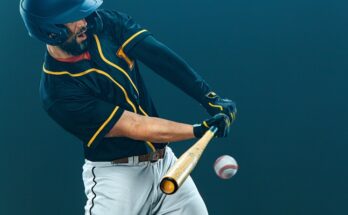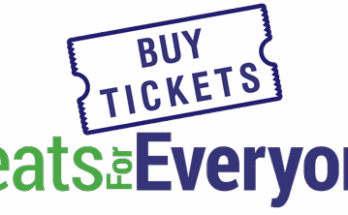Welcome to Pandemicball
Except the crowd kept cheering. It was just a little unimpressive single, and there were two out. The sound, flat and consistent, stretched far beyond where you would expect a collective breath, that fracturing of excitement that happens when one play has ended and everyone is anticipating the next one. And when it did fade, it didn’t dissolve the way it usually does, back into the thousands of individual conversations, all with their own volumes and paces. It faded back to that comfortable murmur, smooth and fast, like someone pushing down a volume slider. When Urshela was caught in a rundown soon after, there wasn’t the dismayed frenzy of people groaning, yelling “No! No!” in frustrated inevitability, standing up in their seats as though doing so could convince the deviant baserunner of the error of their ways. There was just a rise, and then a fall; gentle and unified, a mechanical sigh. Urshela left, and the inning was over. Cut to commercial. Go get a snack.
And when Judge launched a fastball into the empty seats in right, he rounded the bases tentatively, confused. The ball had left the yard, and the lights were flashing, and the noise had swelled. On the replay, they showed the Statcast data, the exit velocity and the ball’s high arc in the air. All the signs we have come to associate with a home run. But was it? This is baseball we’re watching, right?
Velasquez, with a shrug, just walked away. Because it was a real home run, but it wasn’t. It mattered, but it didn’t.
***
The past week-ish since MLB teams began playing exhibition games against each other marks, for many people, the welcome return of “real” baseball. What does “real” baseball mean? The KBO, NPB, and CPBL are all professional baseball leagues with high levels of play, games broadcasted and accessible online, and established fanbases; all of them have been playing their regular seasons for at least a few weeks (as in the case of NPB), if not months (the KBO and CPBL). The CPBL has even begun to allow fans in the stands. And the presence of these baseball leagues has been a balm for a lot of North Americans who might not have watched them if not for MLB’s absence.
But even if one acknowledges the existence and value of professional baseball outside of North America, for many people, it just doesn’t feel the same. The ritual one might have developed streaming KBO games on Twitch in the middle of the night during the pandemic, comforting and important though it might have been, doesn’t carry the emotional weight of watching the team you grew up watching, the team whose fandom was passed onto you by your family, the team you’ve spent years of your life following and analyzing and learning inside and out. The new teams and new traditions can’t conjure the same extensive personal history — days spent at the ballpark, favorite players and plays, brilliant triumphs and devastating defeats, little idiocies and petty frustrations.
Baseball that is not the baseball of one’s team or one’s league is real baseball. Of course it is. But it’s a different experience of real baseball. It’s an experience that, right now, is necessarily always mediated through screens, through great distances and times. It’s an experience that doesn’t have the same fullness of memory, the continuity of sports narrative measured against the continuity of one’s own life.
No wonder, then, the return of major league teams playing other major league teams in major league stadiums has been so comforting and so celebrated. Just the sound of broadcaster chatter can carry you to normalcy. How could it not, when major league baseball has been the backdrop for so many thousands of our normal days, our normal lives?
***
Nothing is normal. Our personal interactions aren’t normal. Our jobs aren’t normal. And baseball isn’t normal, either. The seats are empty; the crowd you hear isn’t there. The players wear masks; behind the scenes, their movement is limited, and massive amounts of resources are being devoted to making sure they aren’t infected by a virus that left one of the game’s stars praying for his life. It is late July, and Opening Night — not Day, Night — is tomorrow. Not only do these exhibition games not count toward regular-season record-keeping. In the way that these games have played, in their mechanics and rules and the occasional abandonment of them, they warp at the edges, reminding you that no matter how familiar it all is — this is not the same as it always was. The “real” baseball is not as real as it can sometimes seem.
Judge’s three-out home run was just one of the times when the unreality showed through. There is the saga of Francisco “Chico” Herrera, the Dodgers clubhouse attendant who’s been flashing some fine leather in the field. In the bottom of the first in the Diamondbacks-at-Dodgers game on Sunday, the Dodgers left the field without any batters having been retired — after a Cody Bellinger grand slam, it was simply decided that enough pitches had been thrown for the next frame to begin. Monday’s Cubs-at-White Sox game ended after just one inning; a 1-0 game between the Padres and the Angels went into extras so that a runner could be placed on second. And through the pumped-in crowd murmur, there are flashes of individual voices, individual sounds — sounds we know well made shocking in their volume, in their isolation.
In a normal season, baseball fans celebrate the weirdness, the strange and the random; they are part of what makes baseball wonderful. And that’s what has made the strange, random happenings in this spate of games so odd to experience. It’s fun that Vince Velasquez recorded three outs and then allowed a home run in the same inning. It’s fun that Chico has played so well, and that a game ended after a single inning. And it’s hard not to feel the positive emotions associated with baseball built up over a lifetime — to be grateful to have this, at least, these sounds and sights.
But then you remember the circumstances that have allowed for us to be watching this bizarre, real-but-not baseball in the middle of the summer: a pandemic that has killed over 140,000 people in the United States, the country wherein this baseball is being played, and where confirmed cases continue to rise daily. Where teams are discussing infection rate as competitive advantage. You look around at the fanless seats, the cardboard cutouts with their permanently smiling faces. The voice of the crowd lasts just a bit too long, fades a bit too fast. There is only so much that baseball can allow you to escape from.
When the 2020 MLB season officially begins tomorrow, there will be no more one-inning games or three-out homers. But the feeling of the uncanny, the combination of comfort and discomfort that these exhibition games have introduced — I don’t think that blurry feeling will go away. I think we have to sit with it. That all of this — masks and empty seats, home run trots, testing delays, silly errors, players felled by illness, championships and awards, a country suffering in almost every way possible — is, in 2020, what real baseball is.


